The sectoral target for carbon reduction for agriculture is currently being negotiated by the Government. It will be a definite number between 22% and 30%, the range announced last October.
With this in mind, the Irish Farmers Journal contacted a wide range of TDs from all political parties and independents, and from every rural and many urban constituencies, seeking their views on the target that should be set.
We also asked if additional funding will be needed for farmers to enable them to reduce emissions and if they felt biogenic methane measurement should influence negotiations between Ministers Eamon Ryan and Charlie McConalogue.
Jackie Cahill
Fianna Fáil, Tipperary
Jackie Cahill said the emissions target should be 22% and no higher.
He said that extra funding is most definitely needed, and it has to be a separate budget to what is already in place.
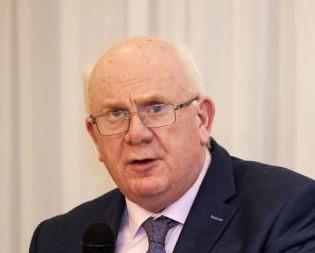
Oireachtas Committee on Agriculture chair Jackie Cahill TD.
“I have said as much to the Taoiseach. There are new technologies that farmers can embrace to reduce farming’s carbon footprint, but they cost money.
“TAMS won’t work, as the escalating cost of buildings and equipment will soak up all TAMS funding,” he said.
He called for biogenic methane to be taken into consideration and that as chair of the Oireachtas Agriculture Committee, he is ensuring “we bring in experts on biogenic methane, including Professor Myles Allen, as a matter of urgency”.
Denis Naughten Independent,
Roscommon-Galway
“I believe that we should be looking at a target close to the 22% reduction minus the inclusion of biogenic methane.
“Government has failed to progress any actions over the past two years to reduce emissions. Smart Farming, an initiative between farmers and the EPA, not only saved farmers money but reduced on-farm emissions by 10%. These measures should have been mainstreamed.”

Denis Naughten TD. \ Ferdia Mooney
He called for “immediate additional funding” to enable farmers to “increase our carbon stocks”.
“I don’t accept the target range being set for agriculture that includes biogenic methane which cannot and should not be treated in the same manner as other forms of methane,” he said.
James O’Connor
Fianna Fáil, Cork East
“If I had my way, the figure would be zero per cent and there’d be carbon profiling for every country.”
He said reducing emissions is “much easier said than done” and that additional funding from the Department of Climate and Energy is needed to support farmers.
The Fianna Fáil TD said that food security is the “topic of the day” and warned that “we have to be careful what we do” as other countries are “clambering” with “deals being done” on grain supply.
Michael
Healy-Rae
Independent,
Kerry
Michael Healy-Rae said a figure between 22% and 30% is already “too high and unachievable”. He said “there is no point in setting a target [which] we all know it is completely aspirational and will not happen”.

Kerry TD Michael Healy-Rae.
He said the targets the Government has “signed us up to” are “actually insane” and that this is “being further proven with the Germans reopening their coal mines in recognition of the fuel and energy crisis facing the world”.
“All the money in the world is not going to help” achieve farming’s emissions target “at this time”.
Carol Nolan
Independent,
Laois-Offaly
Carol Nolan called for a “max” emissions target of 22%. She warned that anything further is “demanding too much, too quickly”, something she says has been a “shameful hallmark of this Government’s approach to emission and decarbonisation reductions”.

Laois-Offaly Independent TD Carol Nolan.
“The lowest possible target should be set to facilitate a fair transition and to minimise disruption.”
The higher the target is set, “the greater the funding that ought to be supplied to facilitate and support that demand”.
A “separate target for biogenic methane” would be a “practical and fair route to take”.
Brian Leddin
Green Party, Limerick city
Leddin refused to suggest an exact target for the sector but said that, overall, “the main thing is the 51% [reduction] by 2030 and the net zero by 2050”.
He criticised those who are invested in one sector over others and said that if one is given a lesser target, that “has to be compensated elsewhere”.
Leddin said that “nobody is under any illusion as to how difficult that will be”.

Green Party TD and chair of the climate oireachtas committee Brian Leddin.
“Certain sub-sectors” in farming were encouraged to increase production in recent years and “we can’t turnaround a ramp up”, he said.
Minister McConalogue “needs to do more” to provide funding for climate measures in the CAP and it’s “not in the Green Party’s interest to make a villain out of farmers”.
Michael Fitzmaurice Independent, Roscommon–Galway
Fitzmaurice said he “will be opposing sectoral targets in agriculture and if it is voted through it would be the minimum of 22%”.
He said he opposes the Climate Bill as the “methane and carbon figures are inaccurate” due to “huge amounts of sequestration that was never added”.
“We are starting from a wrong base, which will crucify farmers.
“If the EU want a carbon neutral society, they have plenty of monies available to those outside of the EU therefore they should bring in a special budget for the agricultural sector for this.”
Verona Murphy
Independent, Wexford
While declining to support a “specific number between 22% and 30%”, Murphy said the “main problem with targets for the agricultural sector, as they stand, is the possibility that the data being used as a basis to make such decisions is either incomplete or inaccurate”.

Verona Murphy TD. \ Barry Cronin
She said the “Government’s whole approach to climate change is misguided” and highlighted that she “did not support the Climate Action Bill”.
Murphy said the farm sector “cannot be expected to shoulder the costs [of emissions reduction] without further support”.
Matt Carthy
Sinn Féin,
Cavan-Monaghan
Carthy declined to suggest an emissions target as before this is enforced, “there must be full clarity as to the implications for farmers and the agri-food sector” and “additional funding will be required to assist this process”. 
Sinn Féin's agricultural spokesman, Matt Carthy TD. \ Philip Doyle
“This must include the full detail of measures that will be required in order to meet each percentage point so that the targets set are fair and, crucially, achievable. To date, we do not have that full information.
“Sinn Féin will not support measures that will reduce production in Ireland but lead to increased global emissions or biodiversity loss through carbon leakage.”
Holly Cairns
Social Democrats,
Cork South-West
Calling for an “ambitious” target for every sector, Cairns declined to provide a specific number within the range. “The piecemeal release of information by the Government on this important issue is deeply disrespectful to farmers and rural communities.
Social Democrat agriculture spokesperson Holly Cairns TD. / Claire Nash
“This should have been a partnership process from the start in which farmers, food producers and others could have been genuine participants. Instead, whole sectors are now waiting on the outcome of internal disagreements in Government.
“Any changes to reduce emissions need to be supported and incentivised by funding models.”
John Paul Phelan
Fine Gael,
Carlow-Kilkenny
A target closer to the 22% is the expectation among rural Fine Gael TDs, Phelan said.
He said that global food security concerns have to be taken into account when it comes to the emissions target to be set for agriculture. 
John Paul Phelan TD.
Phelan warned that there will be unrest within Fine Gael if a target closer to 30% is returned from negotiations and suggested that Minister Eamon Ryan must do more on supporting farmers to invest in renewable energy.
Seán Canney
Independent,
Galway East
Canney called for the target to be set at 22%, adding that funding is required especially for the small family farm over the entire transition period to ensure there is Just Transition. “We need to recognise the unique characteristics of biogenic methane and that must form a key part of the sectoral target assessment.
“As science and understanding evolve, so must the targets for farming be adjusted.”
Michael Collins
Independent,
Cork South-West
Collins said “22% is way too high a target for farming. It’s totally unrealistic for the Government to think farmers can meet such a target.
“Don’t they understand farmers are going out of business?
Farmers can’t put food on the table, and soon there won’t be food for anyone else’s table either.”
Biogenic methane should of course be part of the equation, he said.
Richard O’Donoghue
Independent,
Limerick county
O’Donoghue said a 22% reduction “at current herd levels is achievable, but only if help is given to farmers.
“For instance, protected urea needs to be available at an affordable price,” he said, adding that biogenic methane must be taken into account.
The sectoral target for carbon reduction for agriculture is currently being negotiated by the Government. It will be a definite number between 22% and 30%, the range announced last October.
With this in mind, the Irish Farmers Journal contacted a wide range of TDs from all political parties and independents, and from every rural and many urban constituencies, seeking their views on the target that should be set.
We also asked if additional funding will be needed for farmers to enable them to reduce emissions and if they felt biogenic methane measurement should influence negotiations between Ministers Eamon Ryan and Charlie McConalogue.
Jackie Cahill
Fianna Fáil, Tipperary
Jackie Cahill said the emissions target should be 22% and no higher.
He said that extra funding is most definitely needed, and it has to be a separate budget to what is already in place.

Oireachtas Committee on Agriculture chair Jackie Cahill TD.
“I have said as much to the Taoiseach. There are new technologies that farmers can embrace to reduce farming’s carbon footprint, but they cost money.
“TAMS won’t work, as the escalating cost of buildings and equipment will soak up all TAMS funding,” he said.
He called for biogenic methane to be taken into consideration and that as chair of the Oireachtas Agriculture Committee, he is ensuring “we bring in experts on biogenic methane, including Professor Myles Allen, as a matter of urgency”.
Denis Naughten Independent,
Roscommon-Galway
“I believe that we should be looking at a target close to the 22% reduction minus the inclusion of biogenic methane.
“Government has failed to progress any actions over the past two years to reduce emissions. Smart Farming, an initiative between farmers and the EPA, not only saved farmers money but reduced on-farm emissions by 10%. These measures should have been mainstreamed.”

Denis Naughten TD. \ Ferdia Mooney
He called for “immediate additional funding” to enable farmers to “increase our carbon stocks”.
“I don’t accept the target range being set for agriculture that includes biogenic methane which cannot and should not be treated in the same manner as other forms of methane,” he said.
James O’Connor
Fianna Fáil, Cork East
“If I had my way, the figure would be zero per cent and there’d be carbon profiling for every country.”
He said reducing emissions is “much easier said than done” and that additional funding from the Department of Climate and Energy is needed to support farmers.
The Fianna Fáil TD said that food security is the “topic of the day” and warned that “we have to be careful what we do” as other countries are “clambering” with “deals being done” on grain supply.
Michael
Healy-Rae
Independent,
Kerry
Michael Healy-Rae said a figure between 22% and 30% is already “too high and unachievable”. He said “there is no point in setting a target [which] we all know it is completely aspirational and will not happen”.

Kerry TD Michael Healy-Rae.
He said the targets the Government has “signed us up to” are “actually insane” and that this is “being further proven with the Germans reopening their coal mines in recognition of the fuel and energy crisis facing the world”.
“All the money in the world is not going to help” achieve farming’s emissions target “at this time”.
Carol Nolan
Independent,
Laois-Offaly
Carol Nolan called for a “max” emissions target of 22%. She warned that anything further is “demanding too much, too quickly”, something she says has been a “shameful hallmark of this Government’s approach to emission and decarbonisation reductions”.

Laois-Offaly Independent TD Carol Nolan.
“The lowest possible target should be set to facilitate a fair transition and to minimise disruption.”
The higher the target is set, “the greater the funding that ought to be supplied to facilitate and support that demand”.
A “separate target for biogenic methane” would be a “practical and fair route to take”.
Brian Leddin
Green Party, Limerick city
Leddin refused to suggest an exact target for the sector but said that, overall, “the main thing is the 51% [reduction] by 2030 and the net zero by 2050”.
He criticised those who are invested in one sector over others and said that if one is given a lesser target, that “has to be compensated elsewhere”.
Leddin said that “nobody is under any illusion as to how difficult that will be”.

Green Party TD and chair of the climate oireachtas committee Brian Leddin.
“Certain sub-sectors” in farming were encouraged to increase production in recent years and “we can’t turnaround a ramp up”, he said.
Minister McConalogue “needs to do more” to provide funding for climate measures in the CAP and it’s “not in the Green Party’s interest to make a villain out of farmers”.
Michael Fitzmaurice Independent, Roscommon–Galway
Fitzmaurice said he “will be opposing sectoral targets in agriculture and if it is voted through it would be the minimum of 22%”.
He said he opposes the Climate Bill as the “methane and carbon figures are inaccurate” due to “huge amounts of sequestration that was never added”.
“We are starting from a wrong base, which will crucify farmers.
“If the EU want a carbon neutral society, they have plenty of monies available to those outside of the EU therefore they should bring in a special budget for the agricultural sector for this.”
Verona Murphy
Independent, Wexford
While declining to support a “specific number between 22% and 30%”, Murphy said the “main problem with targets for the agricultural sector, as they stand, is the possibility that the data being used as a basis to make such decisions is either incomplete or inaccurate”.

Verona Murphy TD. \ Barry Cronin
She said the “Government’s whole approach to climate change is misguided” and highlighted that she “did not support the Climate Action Bill”.
Murphy said the farm sector “cannot be expected to shoulder the costs [of emissions reduction] without further support”.
Matt Carthy
Sinn Féin,
Cavan-Monaghan
Carthy declined to suggest an emissions target as before this is enforced, “there must be full clarity as to the implications for farmers and the agri-food sector” and “additional funding will be required to assist this process”. 
Sinn Féin's agricultural spokesman, Matt Carthy TD. \ Philip Doyle
“This must include the full detail of measures that will be required in order to meet each percentage point so that the targets set are fair and, crucially, achievable. To date, we do not have that full information.
“Sinn Féin will not support measures that will reduce production in Ireland but lead to increased global emissions or biodiversity loss through carbon leakage.”
Holly Cairns
Social Democrats,
Cork South-West
Calling for an “ambitious” target for every sector, Cairns declined to provide a specific number within the range. “The piecemeal release of information by the Government on this important issue is deeply disrespectful to farmers and rural communities.
Social Democrat agriculture spokesperson Holly Cairns TD. / Claire Nash
“This should have been a partnership process from the start in which farmers, food producers and others could have been genuine participants. Instead, whole sectors are now waiting on the outcome of internal disagreements in Government.
“Any changes to reduce emissions need to be supported and incentivised by funding models.”
John Paul Phelan
Fine Gael,
Carlow-Kilkenny
A target closer to the 22% is the expectation among rural Fine Gael TDs, Phelan said.
He said that global food security concerns have to be taken into account when it comes to the emissions target to be set for agriculture. 
John Paul Phelan TD.
Phelan warned that there will be unrest within Fine Gael if a target closer to 30% is returned from negotiations and suggested that Minister Eamon Ryan must do more on supporting farmers to invest in renewable energy.
Seán Canney
Independent,
Galway East
Canney called for the target to be set at 22%, adding that funding is required especially for the small family farm over the entire transition period to ensure there is Just Transition. “We need to recognise the unique characteristics of biogenic methane and that must form a key part of the sectoral target assessment.
“As science and understanding evolve, so must the targets for farming be adjusted.”
Michael Collins
Independent,
Cork South-West
Collins said “22% is way too high a target for farming. It’s totally unrealistic for the Government to think farmers can meet such a target.
“Don’t they understand farmers are going out of business?
Farmers can’t put food on the table, and soon there won’t be food for anyone else’s table either.”
Biogenic methane should of course be part of the equation, he said.
Richard O’Donoghue
Independent,
Limerick county
O’Donoghue said a 22% reduction “at current herd levels is achievable, but only if help is given to farmers.
“For instance, protected urea needs to be available at an affordable price,” he said, adding that biogenic methane must be taken into account.












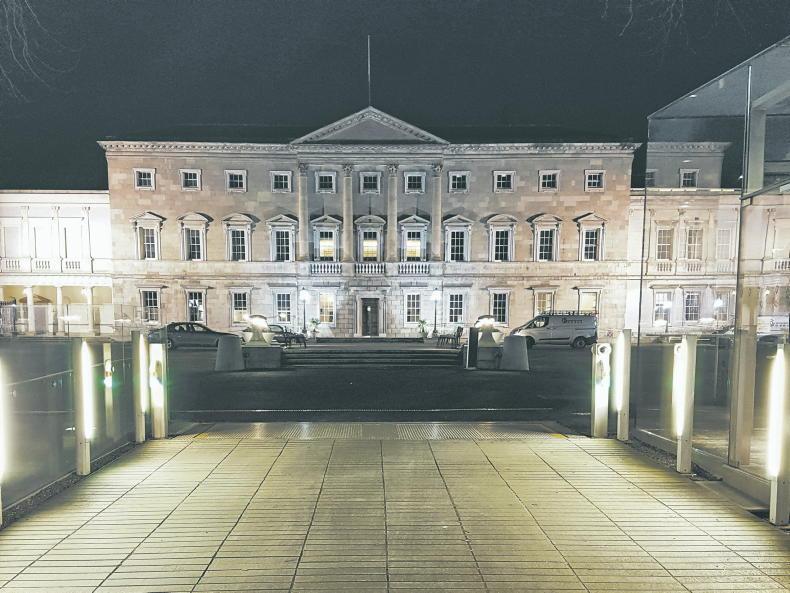
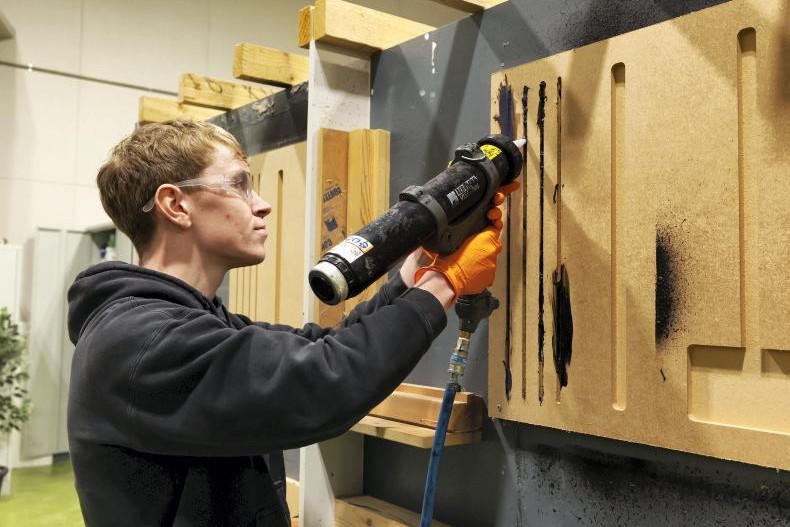
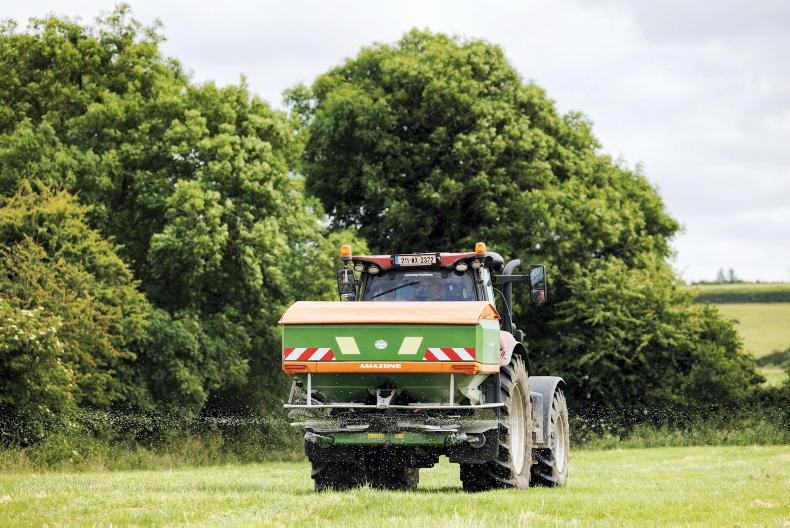
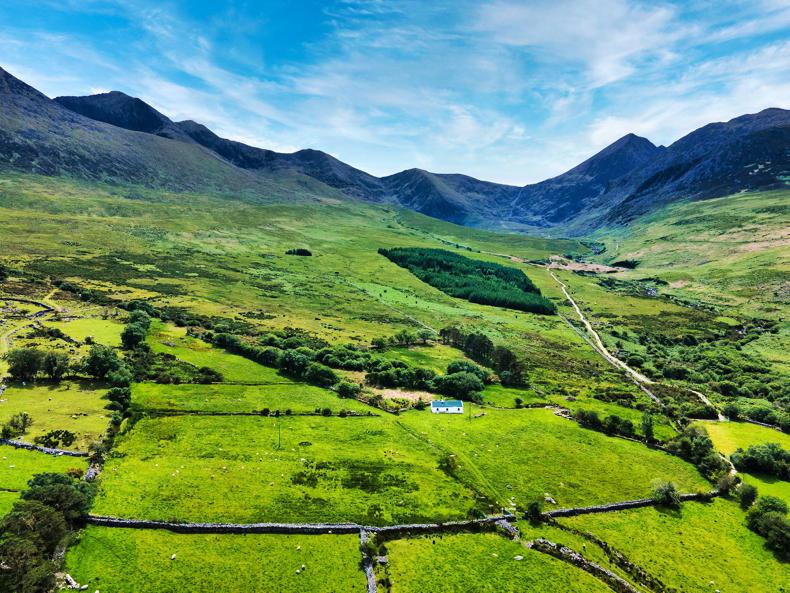
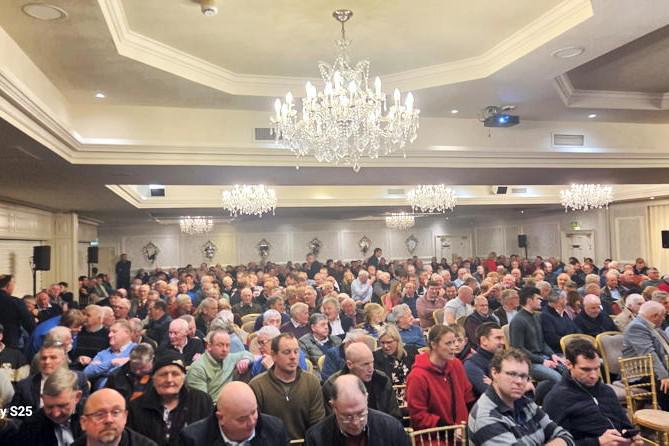
SHARING OPTIONS